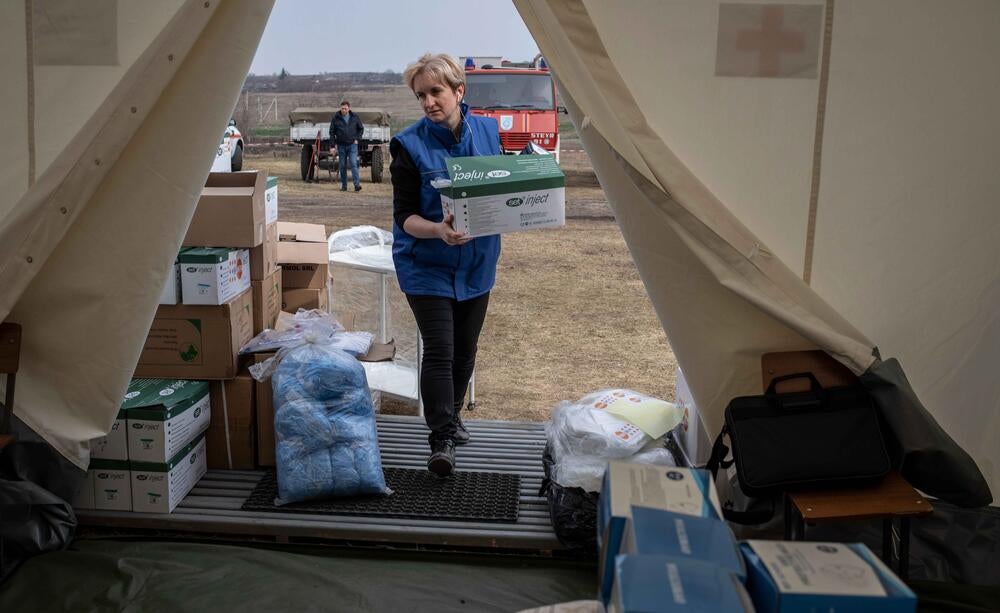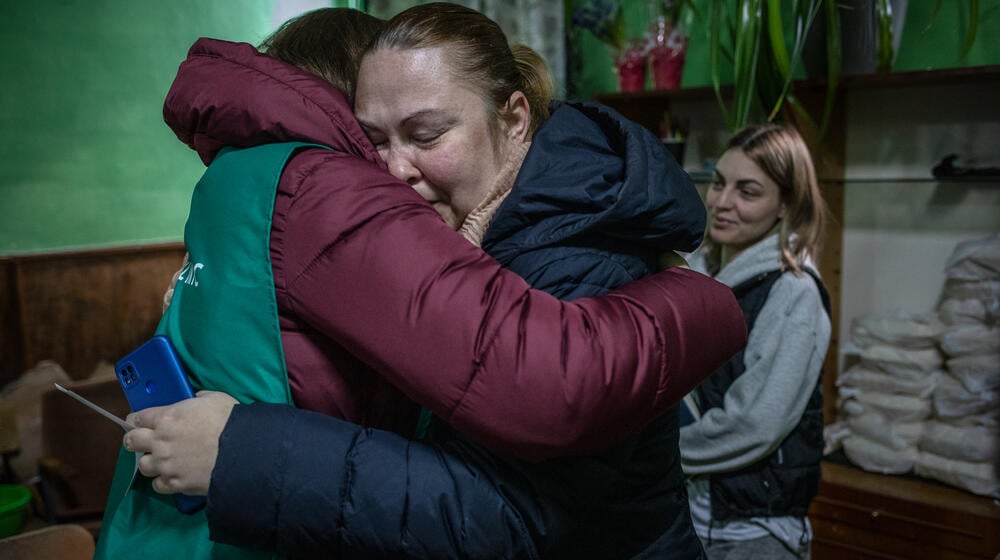LVIV, Ukraine/UNITED NATIONS, New York – When Viktoria Kravets, 17, woke up early on 24 February in her home in Ukraine, she knew something was terribly wrong. “I immediately saw a dozen notifications and thought that I was still asleep,” she recalled to UNFPA. “I lay in bed and couldn't understand what was going on. Our school lessons were suspended, and I sat at home flipping through the news with fear.”
Reliable information can be elusive even under normal circumstances, but in humanitarian crises, uncertainty only grows. In the moment when individuals are forced to make life-or-death decisions about whether to flee, where to go and what to bring, we often see communications systems break down, leaving routine forms of reporting to be replaced by rumour and misinformation.
These are moments when organizations, too, must make life-or-death decisions about where to locate aid and resources. To address this, UNFPA is providing updated population data to humanitarian responders, an initiative that is saving lives.
"Good data systems are critical. Coordinated, triangulated, and high-quality data across the full spectrum of humanitarian support allows for an evidence-based, rights-centred, effective response that leaves no one behind," said Dr. Julitta Onabanjo, the head of UNFPA’s technical division, in a session on the sidelines of the United Nations Commission on Population and Development.
Real-time data
"Coordinated efforts to align population data and displacement data are badly needed to inform humanitarian decision-making," Giulia Vallese, UNFPA’s Regional Director for Eastern Europe and Central Asia, said at the event.
UNFPA quickly mobilized to meet this need.
By the first week of March, UNFPA had provided a so-called “common operational dataset” to humanitarian partners, featuring updated population projections by sex, age and region for Ukraine. The country’s last census dates back to 2001 (its long-awaited next census was due to take place in 2023), so UNFPA complemented outdated information with more than 20 years worth of civil registration data, administrative migration data, and geospatially referenced data.
"Knowing who they are, where they are, and in which physical and mental conditions they reach the services can make the difference between life and death," Ms. Vallese said.

UNFPA is using these data to allocate medical supplies, dignity kits and essential reproductive health and psychosocial services to women affected by the war in Ukraine, including displacement sites in neighbouring countries.
The data are also featured on the Humanitarian Data Exchange (HDX) platform for use by other life-saving organizations. For example, the International Organization on Migration used the common operational dataset to mobilize a population survey helping to understand the state of internal displacement within Ukraine.
Doing her part

“Political decision-making relies on near real-time data,” said Hans-Christian Mangelsdord of the German foreign affairs ministry, speaking at the UN event, which was
hosted by the Government of Moldova, the UN Refugee Agency and the International Organization for Migration.
UNFPA is working closely with partners to update the dataset, which as of late May and early June reflected the mass movement of an estimated 7 million refugees and more than 7 million internally displaced within the country.
Victoria, too, is doing her part. She volunteers in shelters and aid distribution locations, registering displaced individuals and families to help ensure their needs are known and met.
“We are registering refugees here,” she said in a video diary she recorded for UNFPA. Her diary highlights not only the strains on her community but also their resilience and determination.
“There are in fact, many people,” she emphasized. “There are people here, still alive.”


